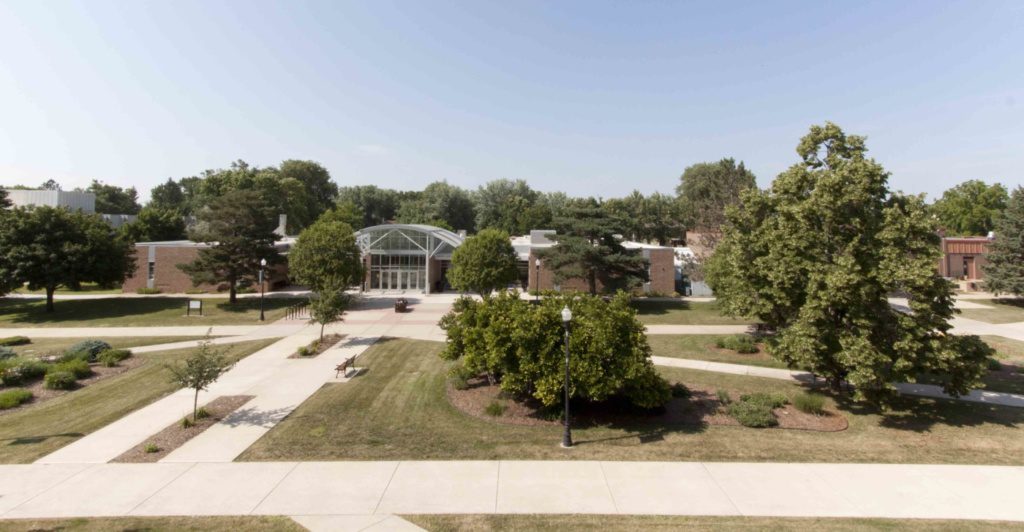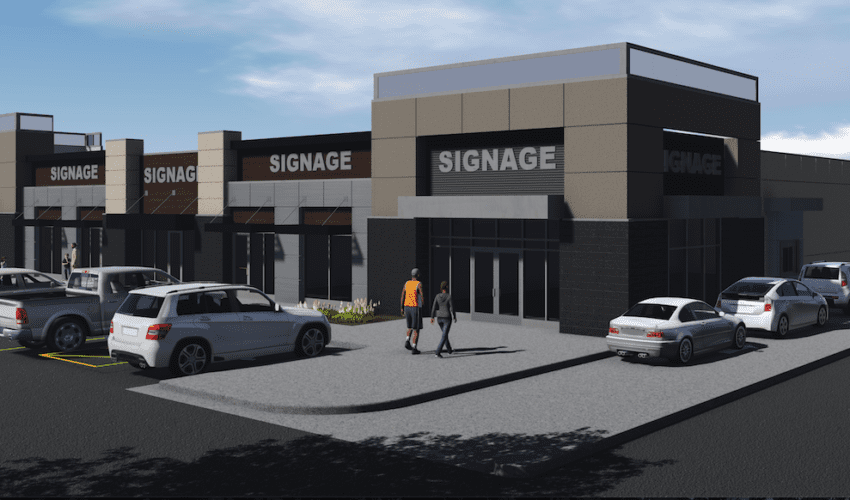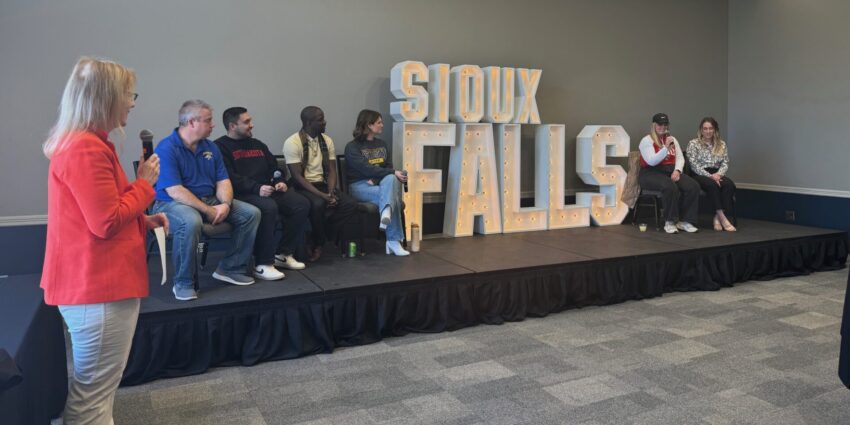Madison, DSU take innovative approach to bring 5G to town
Dec. 4, 2018
This paid piece is sponsored by Dakota State University.
A unique partnership in Madison could make the city the first of its size in the country to have full 5G coverage.
Communities nationwide are racing to secure the new technology, which will greatly improve smartphone connectivity and pave the way for a wide variety of associated business development. 5G, which stands for “fifth generation” of communication for mobile devices, will deliver reduced latency, increased system capacity, energy efficiency, high data rate and massive device connectivity.
In late October, the Madison City Commission approved a licensing agreement to bring 5G-capable infrastructure to the area. Dakota State University is among several visionary community partners supporting 5G technology in the community.
“If we as a city don’t incentivize it and partner with them, we can be easily overlooked,” said Mike Waldner, Madison public safety commissioner. “We may be the first in the nation for a city to have a ‘no cost’ solution for five years, which will help incentivize carriers to provide small cells.”
To implement this communication change in Madison, providers of 5G will be allowed to use city poles rent-free for five years. For the second five-year period, the licensee will pay the city $25 a year. Currently, the agreement is between Madison and Verizon Wireless; however, AT&T may request an agreement in the near future.
Those involved say there’s no doubt the Madison community and area economy will see a benefit, from businesses and schools to health care systems.
“Having 5G and small-cell technology will be an attractor for businesses to position themselves in Madison because the infrastructure for enhanced services will be in place,” said Jose-Marie Griffiths, president of Dakota State University. “The history is that businesses will locate to the cities where the best and strongest broadband capability exists.”
With 5G in classrooms from elementary through high school, students potentially could arrive at school without a backpack, as 5G can offer cloud-based storage with high download speeds. It would allow students to learn a variety of ways at their own pace through connected laptops and smart boards.
For Dakota State University, the possibility of incorporating 5G allows students to continue to define ways to improve their technological skills both on and off campus. The new technology also will offer research opportunities for students and faculty.
The Madison health care system, patients, nurses, doctors and other staff members could have numerous advantages that would help revolutionize health care. 5G can improve emergency response services, offer advancements in surgical procedures and help maintain patient records. Other benefits include expanding telemedicine, transmitting large files with adequacy, accommodating individuals who may need a translator, monitoring patients and data in real time and providing a possibility of artificial intelligence.
Now that the city has approved its first incentivized agreement, Madison “could be the first small city in the United States to have full coverage of 5G. We would become the model for the 86 percent of U.S. cities that have a population of fewer than 10,000,” Griffiths said.
Even though 5G is creating quite a bit of excitement, there will be a brief waiting period. “The infrastructure could be in place by spring 2019,” Waldner said.
For information on the agreement, contact the Madison finance office at 605-256-7500.









